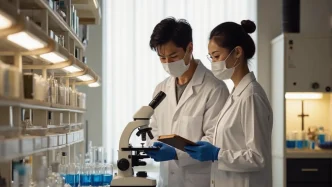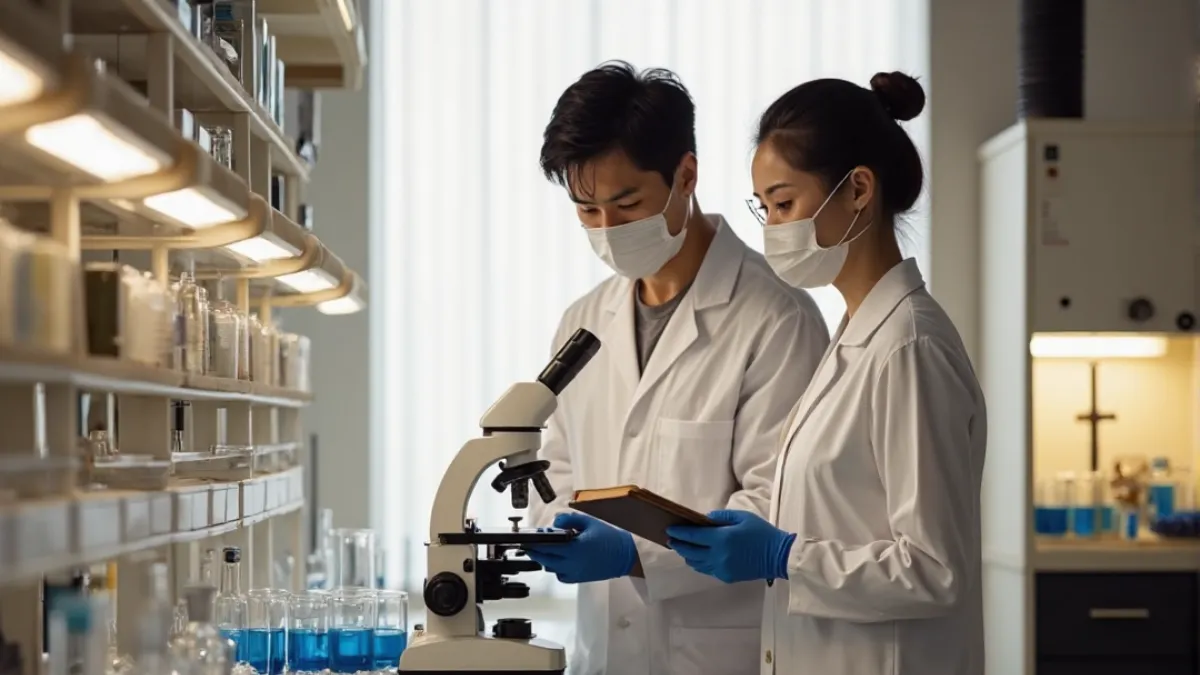A revolutionary approach to monitoring Barrett’s oesophagus, a condition that significantly raises the risk of oesophageal cancer, has emerged from researchers at the University of Cambridge. Their innovation, a capsule sponge, offers a quicker, cheaper, and non-invasive alternative to traditional endoscopy, potentially transforming early cancer detection worldwide, including in regions like South East Asia where risk factors are on the rise.
A Simpler Path to Diagnosis
For years, monitoring Barrett’s oesophagus—a precancerous condition where the normal cells of the oesophagus transform into intestine-like cells—has relied on endoscopy, an invasive procedure involving a camera-equipped tube inserted through the mouth. While effective, it is costly, time-consuming, and often requires sedation. The University of Cambridge team has developed a groundbreaking alternative: a small capsule attached to a string that, once swallowed, releases a sponge in the stomach. As the sponge is gently pulled back up through the oesophagus, it collects cells for analysis. The entire process takes about 10 minutes, can be performed by a nurse in a clinic setting, and eliminates the need for sedation.
Dr. Tan Wei Keith, a Cancer Research UK Clinical PhD Fellow and the study’s lead author, highlighted the practicality of this method. “This is much cheaper than endoscopy and does not require the same level of medical infrastructure” he said. For overstretched healthcare systems in countries like Malaysia, Thailand, and Vietnam, where access to specialized equipment and trained endoscopists can be limited, such an innovation could be a game-changer.
Risk Stratification and Early Detection
Beyond simplifying diagnosis, the capsule sponge test shows promise in identifying which patients with Barrett’s oesophagus are at higher risk of developing oesophageal cancer, specifically oesophageal adenocarcinoma—a risk that can be up to 40 times higher for those with the condition. In a study published in The Lancet medical journal on June 23, 2025, involving patients from 13 British hospitals, researchers demonstrated that the sponge can reliably stratify patients into low- and high-risk categories. “We analysed the cells collected from the sponge for early signs of cancer and tried to estimate the individual’s cancer risk” Dr. Tan explained. This process, known as risk stratification, allows doctors to prioritize patients who need further investigation or treatment while sparing low-risk individuals from unnecessary procedures.
The implications are profound. Oesophageal cancer ranks as the seventh most common cancer globally and the sixth deadliest, with less than 20% of patients surviving five years post-diagnosis, largely due to late detection. “When symptoms appear, the cancer often has spread to other organs, making it harder to treat” Dr. Tan noted. Catching the disease early through non-invasive methods like the capsule sponge could enable organ-sparing treatments, where cancerous cells are removed via endoscopy, avoiding the need for major surgery or chemotherapy in advanced cases.
A Personal Mission with Global Impact
For Dr. Tan, a Malaysian training to become a gastroenterologist and hepatologist, the research carries deep personal significance. Reflecting on family and friends who received cancer diagnoses too late for effective treatment, he emphasized the importance of early detection. “Helping someone avoid a major operation while still curing their cancer is one of the most meaningful things we can do as doctors and researchers” he said. His publication as the first author in The Lancet also marks a proud moment for Malaysia, following in the footsteps of Professor Wu Lien-Teh, a pioneering Malaysian physician who published on the Manchurian plague in the same journal over a century ago in 1911.
While the capsule sponge test is not yet available in Malaysia, Dr. Tan and his team are eager to collaborate with local partners to introduce it. This urgency is driven by rising risk factors in the region, such as acid reflux and obesity, which are linked to higher rates of Barrett’s oesophagus and subsequent cancer. In South East Asia, where healthcare resources vary widely—from urban centers like Kuala Lumpur and Bangkok to rural areas with limited medical access—a low-cost, accessible diagnostic tool could save countless lives.
Addressing Regional Challenges
The potential impact of the capsule sponge extends across South East Asia, where oesophageal cancer rates, though lower than in some Western countries, are compounded by systemic challenges. In Malaysia, for instance, the increasing prevalence of lifestyle-related risk factors mirrors global trends, yet diagnostic capabilities lag in less-developed areas. Similarly, in Vietnam and Thailand, where rural populations often face long journeys to access specialized care, a portable and affordable test administered by nurses could bridge critical gaps.
Healthcare costs also play a role. An endoscopy can cost upwards of 3,000 Malaysian Ringgit (US$640 as of June 27, 2025), a significant burden for many families in the region. While exact pricing for the capsule sponge test remains undisclosed, its design as a low-cost alternative suggests it could be far more accessible, potentially reducing waiting times and easing pressure on public health systems. If rolled out in countries with universal healthcare coverage like Thailand, or in Malaysia’s dual public-private system, it could democratize early cancer detection in unprecedented ways.
Looking Ahead: Innovation and Access
While the capsule sponge represents a leap forward, challenges remain in adapting it to diverse healthcare landscapes. Regulatory approval, training for medical staff, and public awareness campaigns will be essential to ensure its adoption. Dr. Tan expressed optimism about returning to Malaysia to contribute his expertise from Cambridge, aiming to elevate standards in early cancer detection. His vision aligns with broader regional efforts to combat non-communicable diseases, which are increasingly prioritized by governments and international health organizations.
The capsule sponge test also raises questions about the future of medical innovation in addressing global health disparities. Could similar non-invasive tools be developed for other cancers prevalent in South East Asia, such as liver or stomach cancer? As research progresses, the hope is that such advancements will not only save lives but also inspire a new generation of regional scientists and doctors to tackle local health challenges with global solutions.
For now, the capsule sponge stands as a beacon of possibility. As Dr. Tan and his colleagues work toward its introduction in Malaysia and beyond, patients at risk of oesophageal cancer may soon have a less daunting path to diagnosis—one that prioritizes early intervention over invasive procedures. In a region where every step toward accessible healthcare counts, this small capsule could herald a much larger transformation.
















